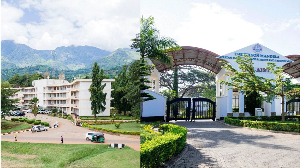I am yet to run into somebody who thinks reading is highly unnecessary to the development of the human race. Like me, a lot of people see reading as a fundamental skill needed by a child to learn to succeed in life. In effect, good reading habit is vital to your child’s future, not just academically, but also in everyday life. In fact, every single time, the great have had the opportunity to comment on anything about reading, they would consistently magnify the essence of reading.
“Reading is essential for those who seek to rise above the ordinary.” – Jim Rohn; “The more that you read, the more things you will know. The more that you learn, the more places you’ll go.” – Dr. Seuss; and Aldous Huxley once wrote: “Every man who knows how to read has it in his power to magnify himself, to multiply the ways in which he exists, to make his life full, significant and interesting.”
These and many other rave reviews on reading, by eminent and successful people, could not have emphasised the significance of reading any better. That is why I was exceedingly gladdened by the declaration of Ghana Library Authority (GLA) the year 2019, in a well publicised launch of their 70th Anniversary celebration, as a ‘National Year of Reading’. It clearly reveals our intent to, as a nation, tackle pressing issues that are key to revolutionalising our educational system to bring it on par with the modern regime. The theme chosen for the year 2019- Reading for progress- is further testament to this assertion.
Beyond these rave reviews and innovative steps, however, my painstaking research could not help me establish any concrete correlation between good reading habits of countries and the success of their educational system. It is my fervent hope that I will, one day, find a precise and concise explanation for this surprising lack of prove. Notwithstanding the aforementioned mystery, we have all come to accept the invaluable impact that reading can make. Indeed, society can hardly make any progress without a decent reading habit. A case in point is China; a country that came from nowhere to top the world economy due to a rigorous pursuance of formal education fuelled by a commendable reading culture in all fields, across all ages. The World Culture Score Index report (2017) says that China is the 3rd country where its people read the most. India may have a literacy rate of 74%, which is lower than the global average of 86%, but it has increased more than 6 times compared to the literacy rate that prevailed in their country when they attained independence in 1947.
This achievement is due to their outstanding reading culture, which the report says beats all other nations’. Thailand was reported to be 2nd per the same World Culture Score Index rankings, but I do not think they are faring badly economically; hence, we could attribute their resurgence to their encouraging reading habits. In the same vein, both Egypt (7th) and South Africa (14th) made it into the top 30 countries in the world where people read the most even though they are 1st and 2nd respectively when Africa is ranked separately.
Admittedly, both countries are also head and shoulders above all others on the continent, when it comes to economic growth, development and advancement. Understandingly, this is the case because information, which is a key contributor to production, is mostly acquired via reading. Therefore, there is no running away from the fact that individuals and society alike only stand the chance to grow/improve, astronomically, when reading becomes a habit. In the face of all these admissions, it is a widely observed phenomenon that majority of Ghanaian children do not like to read, and this is a curious case up for investigation. So, why then, are Ghanaian children of nowadays allergic to reading, a trend that deviates from what pertains globally?
It is because our educational system, over the years, has done little to help these children develop their reading ability (literacy skills). So, simply put, our approach to empowering our learners (beginner readers) with literacy skills has not been as effective as it was supposed to be because, at the moment, about six out of every 10 randomly selected pupils from the average public schools cannot read. Luckily, this situation may be about to change due to the recent introduction of the more effective USAID Partnership for Education: Learning, in some 100 selected public basic schools across the country, which commenced in September 2017.
Hopefully, this programme will revolutionalise the reading culture in the country since its early signs reveal marked improvements in our ability to convert non-readers to various levels of readers, after just two years of its inception. We are optimistic that if nothing changes, and the approach is retained and sustained, the literacy rate will pick up in no time, thereby, presenting our children with a realistic chance to improve their reading habits, by default, since a lot more of them will soon move from their present non-reader level to fluency.
We now seem set to emerge from the laborious, but ineffective approach, to teaching reading, at the inception of a more empirical approach. However, after more of our children, eventually, become fluent readers, how will they gain access to reading materials to enable them develop and sustain their interest in reading? At the moment, access to libraries in 21st Century Ghana is still far from easy. There are not enough libraries in this country. In fact, according to GLA records, there are 61 libraries only under their care in the whole of the country, though they plan to add some other 15 more that were previously being managed by some private entities. Assuming, there is even one library in every district; less than half the total number of districts in this country would boast any library managed by the GLA.
Meanwhile, the few libraries around have either not been properly and adequately stocked, or have been stocked with materials that are less attractive to the modern library user. Again, audio-visual libraries as demonstration of technological advancement and a guarantor of convenience, are not as common as they should be because a mention of their existence, alone, sounds mythical in the ears of many a Ghanaian child, even in this age and era. And the situation is not any better, even in our academic ‘Holy Grail'-the Universities. Libraries are uncommon in Ghana nowadays. This is a clear sign that our country is lagging seriously behind in the use of technology to advance our cause, and it is disappointing to the extent that students are still denied access to internet where they could actually get access to reading materials via same medium to develop their reading habits. It couldn’t get any worse, certainly. Under such backward circumstances, how on earth will our children become habitual readers?
Another major drawback in Ghana’s quest to keep a decent reading culture is that, in this country, there is an abuse of the Ghanaian languages in the schools, especially in the Southern part of the country due to over-reliance on them as mediums of instructions. I trust my fellow countrymen to not hesitate to supply so many reasons in an attempt to justify the practice, but the hard reality is that the situation is proving to be our nation’s Achilles' heel since it has consequently affected the reading culture negatively. Our children do not understand English or other international languages due to this over reliance on our mother tongue.
Meanwhile, most of the reading materials are authored in English and other foreign languages which our children do not understand. So, assuming our children are even able to read due to the newly introduced approach to teaching reading, which we are confident will yield results with time, and eventually curtail the long standing debacle of low literacy in the country, how will they understand what they read? And if they are able to read, but are unable to understand, how will their interests in reading develop and be sustained?
Most imperatively, our greatest challenge yet, as parents, to flush out this poor reading culture and instilling a healthy practice in our children, has to be our own attitude towards reading. Research has shown that parental guidance has a positive influence on children’s reading habits. When parents themselves have a good reading habit; guide their children to read; readout loud for their children to listen; discuss subjects/contents read by their children with them; engage their children in reading activities; help their children understand what they read, etc. such children are more prone to becoming habitual readers compared to their less supported counterparts.
This is according to the Progress on International Reading and Literacy Skills (PIRLS) 2016 International Results in Reading report on fourth graders in Finland. Unfortunately, the literacy rate among Ghanaian parents is quite low. Even those parents who belong to the elite and literate class have mostly claimed to be too busy to read for themselves; let alone talk about providing guidance and support for their children to develop their reading abilities and habit. That will be difficult, at the moment, under the prevailing circumstances.
It is alarmingly sad how nobody likes to be tagged as a ‘book worm’, in this country. But a lot of people are happy when they are described as being ‘hard' or nonconformist. This is sad. The implication is that, reading is not fashionable to Ghanaians, and anything that is not fashionable to a group of people will hardly gain grounds in their society. Even, religion, especially Christianity has taken a fashionable turn, these days, which is why almost everyone wants to be identified by their affiliation to a particular church. My point is that, before reading can appeal to our children, we must make it fashionable by projecting it in a certain way.
For example: discussing books read, on social media, and maybe praising or celebrating people who have read so many books, could do valuable. We can also begin to present books as gifts to people, etc. We must either ‘fashionalise’ reading or forget about making it attractive to the average Ghanaian Child -the future generation. As for the current practice where only trivialities, crime and other useless stuff continue to trend at the expense of productive ventures such as reading, academic activities, etc it is a disruption to the progress of our dear children. Let us all come together and change this so as to transform the reading culture of our society.
By the way, let me hasten to, at this juncture, diffuse the notion held by the ‘doubting Thomases’ of reading, that reading is the reserve of the idle. They, by extension, want us to believe that reading is a luxury and should be carried out only as leisure. This notion is an obvious fallacy. In fact, per the numerous usefulness of reading to society, especially our children, reading can only be regarded as a necessary ingredient for personal and societal development and advancement. As a matter of fact, our children will acquire invaluable wealth of knowledge if they make reading a habit because reading is the surest way to acquire information on any subject.
When much information is possessed by a child on a particular subject or field, it automatically increases their knowledge. Additionally, children will develop and increase their attention span through reading and this can only better their ability to sustain their attention in class for longer periods, when they learn. A good reading habit is also a sure bet on building children’s vocabulary since reading will guarantee an infiltration of a lot of words into their vocabulary, making them have a better grasp of language. For children who are opportune to get exposed to reading even before they start school, they are bound to possess better adaptability to reading-focused learning environment than a lot of their peers, and that could motivate them to perform well at school.
Any of us is capable of promoting and appropriately assisting our children to develop their reading abilities and habits by: reading to them starting from a younger age, as early as possible; modelling good reading habits by taking the time to read yourself; encouraging conversations about content of what your child has been reading. Carry out these simple activities in your home, observe the outcome and thank me later.
Based on the foregoing evidence, therefore, it is imperative that all of us (Ghanaians) share a collective responsibility for developing the reading culture of our kids to reach the levels of their counterparts in other parts of the world. We can never have a society of habitual readers if we do not get all hands on deck. And I guess, by now, a lot of us have now begun to appreciate just how beautiful our society would be if our children improved their reading culture.
It is possible! Just play your role; you do not have to worry about someone else’s role. After all, organisational/group goals become a reality only when individual tasks are ably performed to meet the set target. Our country will only make progress if we direct our resources, and pursue, the right agenda, at the right time. No agenda beat the agenda that seek to equip our children with knowledge. The time, certainly, is now!
Opinions of Thursday, 23 May 2019
Columnist: David Angangmwin Baganiah















